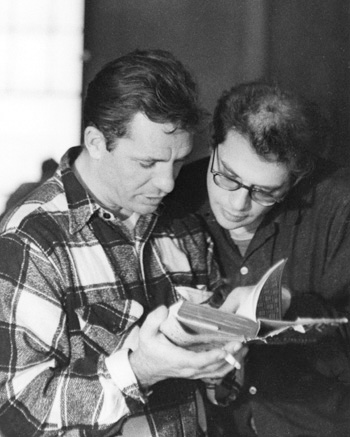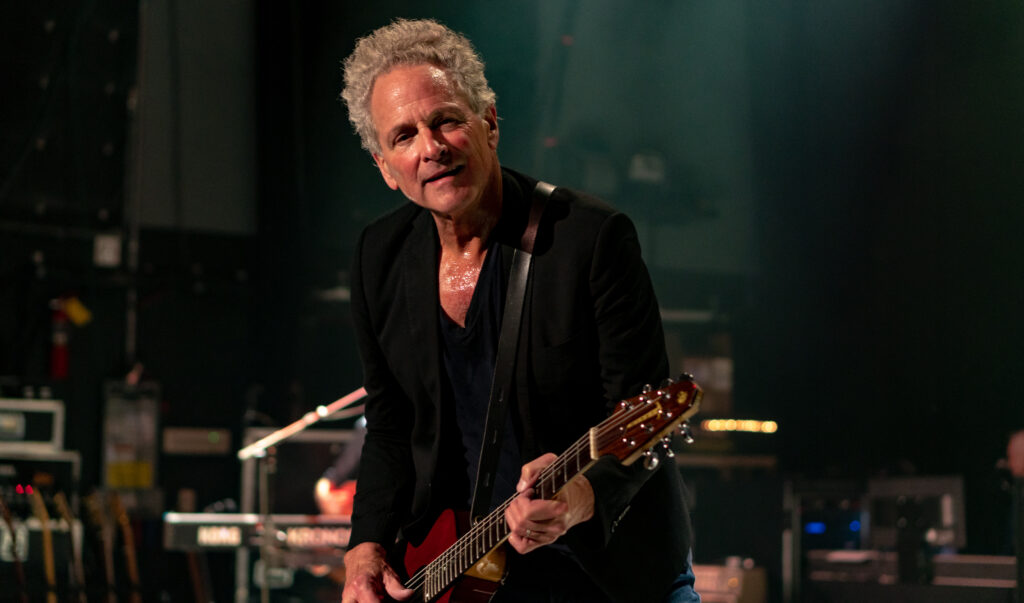Staff Picks: Selections from the Larry Katz Interviews
By Emily Allen and Anna Ryerson
There is nothing more fascinating than listening to musicians describe the process, passion, and dedication that goes into making music. This is something we learned first-hand while working with the Katz Tapes collection. The Katz Tapes were compiled by Larry Katz, a former music critic and columnist at the Boston Herald and a personable and thoughtful interviewer. Katz recorded hundreds of interviews he conducted with musicians, both internationally famous and local Boston-based artists. The majority of the collection focuses on music and musicians, but there are also interviews with authors, writers, comedians, and actors. Overall, the scope and variety within the collection is impressive. From Liza Minelli to Willie Nelson to Miles Davis: classical, jazz, rock, R&B, and pop artists are all represented.
When the Northeastern University Library received the Katz Tapes’ digitized files, we identified a subset with known description and file questions. Incomplete description made it hard to determine who was being interviewed. File issues to solve involved trimming content like white noise, silence, or music. Our job was to listen to the tapes in this subset to resolve these issues, and to confirm who was being interviewed so that researchers and members of the Northeastern community can better access these rich sources of music history.
We would love to share some of our favorite interviews with you:
Emily Allen’s Picks:
- Hal Blaine—If you only listen to one Katz interview in the whole collection, this is the one I would recommend! Hal Blaine was a drummer and a session musician in the 1960s and ’70s. Sessions musicians are artists who are hired to play for specific recording sessions or live performances, and often end up playing with a lot of different artists and bands. Blaine was a prolific session musician in his own right and a member of The Wrecking Crew, a famous session musician group. Inducted into the Rock & Roll Hall of Fame in 2000, Blaine played drums for 40 songs that reached number one. Blaine discussed several performers he worked with, including Frank Sinatra, Elvis Presley, The Monkees, The Beach Boys, and The Carpenters. His personal anecdotes and the way he speaks about these legendary artists is what makes this interview stand out from the rest. Talk about name dropping!

- Allen Ginsberg—Allen Ginsberg, an American poet and writer who was famous for being a part of the Beat Generation, is someone I knew very little about. I never studied this period in American history, and while I have heard of Ginsberg, I did not know anything about him or his work. The way Ginsberg answers questions is insightful and his longtime partner Peter Orlovsky was present and interjects at various points during the interview. If you’re a fan of Ginsberg or interested in learning more about the Beat Generation or Jack Kerouac, give this interview a listen!
- Henry Kaiser—I had never heard of Henry Kaiser prior to this project, but he is an American guitarist and composer. During this interview, Kaiser discusses the album The Sweet Sunny North, which he made in collaboration with David Lindley and a host of Norwegian musicians and instrumentalists. This album is meant to highlight various Norwegian musical traditions and styles. Previously, Kaiser and Lindley recorded a similar album, but with musicians from Madagascar. I think it is such an ingenious idea and album concept to immerse yourself in the music of a completely foreign country, promote new styles of music to American audiences, and introduce lesser-known and unknown musicians to a wider audience.
- Yoko Ono—Everyone knows Yoko Ono as the woman who broke up The Beatles, but besides that dubious claim, I don’t think I’ve ever learned about or heard Ono speak. This was a group interview with several Boston-area reporters, including Katz, asking Ono questions. The interview was conducted because a touring exhibition of artwork created by John Lennon and Ono was making a stop in Boston. Highlights of the interview include her in-depth discussion of Lennon and the surprising admission that Boston has a special place in her heart.
- George Winston—George Winston is also a musician I had never heard of, but he is an American pianist with a massive discography. The interview was unexpected because Winston discusses his dislike of the piano, a surprising admission for a professional pianist! When Katz asks if he ever practices or plays piano just to play, Winston states that he only practices or plays (outside of scheduled performances) when he’s touring! He never listens to piano music at home and easily tires of listening to classical piano music. Instead, Winston prefers the guitar and enjoys listening to guitar and harp music in his spare time.
Anna Ryerson’s Picks:
- Lindsey Buckingham—Lindsey Buckingham talks to Katz shortly after the release of Fleetwood Mac’s album Tango in the Night, which Buckingham compares favorably to their previous album Mirage, calling it a more experimental album. He shares how he came to work more on the production side of the group’s records. Interestingly, Buckingham took a decade-long hiatus from Fleetwood Mac within a year of this interview. Although he shares his desire to work on more solo material, he does not hint that he might be leaving the group any time soon.
- Jerry Butler—Jerry Butler was originally a musician and singer-songwriter, but Katz interviews him later in his career when serves as chairman of the board of directors of the Rhythm and Blues Foundation, so this interview gives more insight into the practical side of the music industry. Butler talks about his organization’s decision to move their annual event from Los Angeles (where it took place at the same time as the Grammys) to New York, in order to make more money to help pay the medical bills and other necessities of older musicians without a safety net. Butler also talks about the importance of proper recognition in situations where newer musicians are borrowing from and taking inspiration from older ones, and how excited he is to be able to honor songwriter Clyde Otis, who contributed to the songs of so many other artists.
- Jim Carroll—An author and poet as well as a musician, Jim Carroll was best known for writing the memoir Basketball Diaries, which became a movie starring Leonardo DiCaprio. When Katz interviews him, he does talk about the music industry and his career as a punk musician but focuses more on his experiences in the poetry scene and on his own writing. Carroll, who played basketball at a high level in high school, mentions his love of the sport in both Basketball Diaries and his second memoir Forced Entries: The Downtown Diaries 1971-1973. However, he tells Katz that he does not regret focusing more on poetry than on basketball as a young adult, particularly considering the longevity of his work in poetry and in writing in general. Thirty-seven years old at the time of this interview, he considers himself “still a young writer” but feels he would “be a very old basketball player.”
- James Carter—Katz interviewed James Carter shortly after the filming of the 1996 movie Kansas City, where he worked with actor and musician Harry Belafonte to pay tribute to great Kansas City jazz musicians of the 1930s. Carter played the famous saxophonist Ben Webster. Carter also talks about his desire to pay tribute to other jazz artists, including some who had never been recorded before, and talks about his recent album, Conversin’ with the Elders, which showcases a long continuum of great jazz musicians.
- Ornette Coleman—A saxophonist, violinist, and trumpeter, Ornette Coleman was best known for his jazz compositions and performances, but when interviewed by Katz, alongside his friend Randy Harrison, he shares a fascinating story about an experience with classical music. When Coleman hoped to perform in England, he was told by the British government that he first needed to write a piece of classical music and qualify as a concert artist. He ended up writing a piece of music called “Forms and Sounds” for himself and a woodwind quintet. He also talks to Katz about how he taught himself how to play the violin!
We hope that these remarkable examples give you some idea of the value of recorded interviews in the music world. It’s particularly interesting to hear the voices and intonations of these musicians, people whose lives were built on sound, and sometimes the interface between sound and the spoken (or sung) word. In addition, through these interviews, you can learn a great deal about the history and the making of music—because they are contemporaneous recordings, they capture the creative process as it occurs.
The best part of working with any kind of archival material is that opportunity for discovery, and the surprises that you will encounter!

